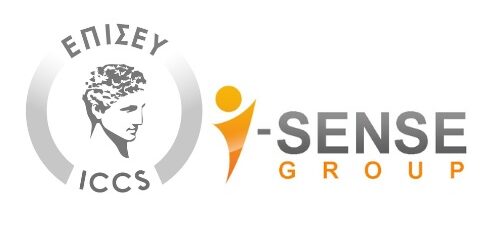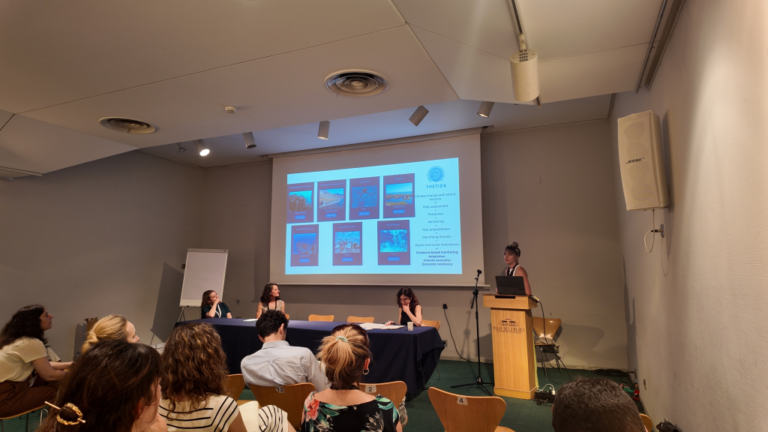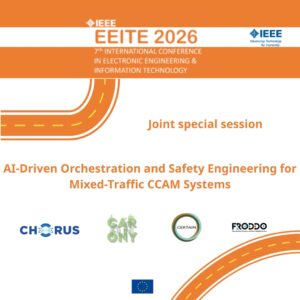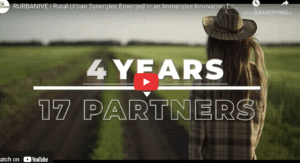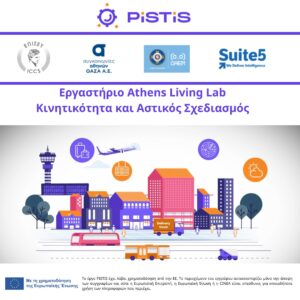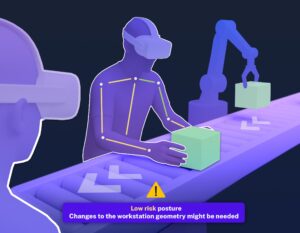The 11th edition of the European Urban Resilience Forum (EURESFO) took place in Valencia, Spain, from June 26-28, 2024. Valencia, the European Green Capital for 2024, hosted the forum as part of the Valencia Cities Climate Week. Since its inception in 2013, EURESFO has served as a crucial European initiative, providing a unique exchange platform in the field of urban resilience. The forum facilitates interactions among city representatives, experts, and local and regional institutions, fostering collaborative approaches to urban resilience.
The characteristic informative and interactive ambiance of EURESFO was evident throughout the various sessions, with active participation from numerous stakeholders. A significant presence at the forum was THETIDA, which participated with the Green Cluster partners RescueME and PALIMPSEST. THETIDA contributed to a dynamic panel discussion titled Resilience Culture: Ensuring Culture is a Meaningful Part of Inclusive and Just Resilience Strategies, moderated by Dr Cristina Garzillo-Leemhuis.
During this session, Dr Tina Katika, Senior Researcher at the Institute of Communication and Computer Systems (ICCS) and representative of the THETIDA project, presented the project’s objectives and vision. Dr Katika emphasized the project’s innovative approach, which leverages the power of citizen science to enhance climate resilience and foster community engagement. She highlighted how the project utilizes crowdsourced data to inform and strengthen resilience strategies for underwater and coastal cultural heritage.
Dr Katika illustrated the significance of community engagement in developing sustainable resilience strategies by presenting two pilot studies conducted by THETIDA. These studies, located in Svalbard, Norway, and La Spezia, Italy, employed an Augmented Reality (AR) crowdsourcing mobile application developed within the project. She described the specific risks faced by these sites, including sea level rise, changing water temperatures, and shifting currents. Furthermore, she elaborated on the combined approach of employing cutting-edge sensing technologies and Living Labs to ensure the resilience of THETIDA’s pilot sites.
Aitziber Egusquiza, RescueME Project Coordinator, echoed this sentiment, stating, “We need to keep changing and adapt. But the management of change is important. One way is to involve cultural heritage managers and officers from the beginning of the decision-making processes,” highlighting a core mission shared by the three participating projects, as concurred Mr Chega Segovia, PALIMPSEST project partner, and local RescueME partner Lola Vicente-Almazán Castro.
In addition to the panel discussion, Dr Katika also participated in an interactive workshop titled Co-creating Inclusive Adaptation Solutions: An Interactive Workshop on Citizen Engagement, where she presented the co-creation initiatives of THETIDA, emphasizing the crucial role of citizen science in climate resilience efforts.
The 11th edition of EURESFO attracted over 450 participants from more than 35 countries, making it a vibrant and inspiring event. It underscored the dynamic and essential role of cultural heritage in resilience strategies and ensured that cultural heritage remains a focal point in the resilience conversation.
As the event concluded, participants looked forward to the next edition of EURESFO, scheduled to take place in Rotterdam in 2025, anticipating further advancements and collaborative efforts in urban resilience.
